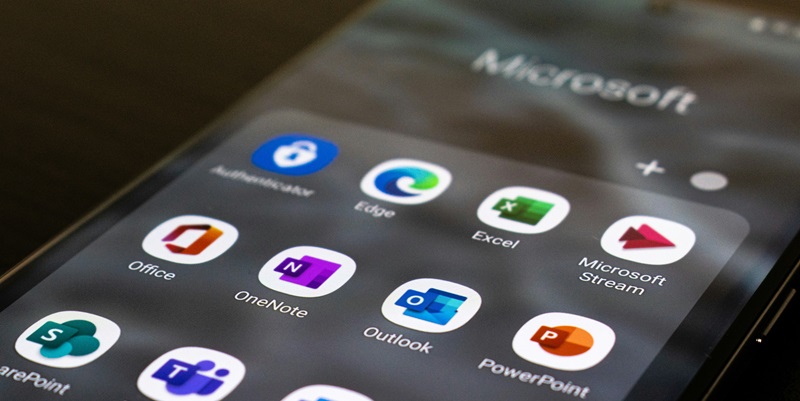As cyber threats grow in complexity and number, Microsoft has unveiled a significant weapon in the cybersecurity arsenal: Copilot for Security, powered by OpenAI’s GPT-4. This groundbreaking platform aims to provide vital support to security professionals worldwide.
Introducing Copilot for Security
The Role of Generative AI in Cybersecurity
The rapid evolution of cyber threats calls for an equally dynamic defense mechanism. Microsoft’s Copilot for Security represents a paradigm shift, harnessing the power of OpenAI’s GPT-4 to equip cybersecurity with the transformative potential of generative AI. Generative AI stands as a cornerstone of this advancement, redefining the capabilities of security professionals to anticipate and respond to a constantly evolving cyber landscape. Vasu Jakkal’s statement has resonated within the cybersecurity community, serving as a clarion call that only through such innovation can the industry hope to keep pace with the nefarious creativity of cyber attackers.
From Concept to Reality: Development and Feedback
Throughout its development, Copilot for Security underwent rigorous refinement. In its nascent stage, a select group of trusted customers were invited to participate in a private preview. Input gathered from these early adopters was invaluable, leading to iterative improvements that aligned with the real-world challenges security professionals face daily. As the platform entered an early access stage, hundreds of users contributed feedback, ensuring the final product was battle-tested for the complexities of the cyber field.
Addressing the Asymmetry in Cyber Warfare
The Disparity Between Threats and Defenders
In the virtual battleground of cyberspace, attackers have seemingly taken the upper hand, leveraging sophisticated techniques that outnumber and outpace the global pool of cybersecurity professionals. Microsoft has identified this discrepancy, noting a staggering shortage of approximately 4 million skilled cybersecurity positions globally. This gap signifies a perilous asymmetric warfare situation, with well-equipped adversaries facing an understaffed defense.
Leveraging AI for Enhanced Defense Capabilities
Copilot for Security is Microsoft’s endeavor to bridge this gap through AI. By augmenting the capabilities of security analysts, AI serves as a force multiplier, enabling professionals to both identify threats that might otherwise slip through the cracks and respond more effectively. Integration with Microsoft’s security ecosystem—including Microsoft Defender XDR, Microsoft Sentinel, and others—creates a unified front where AI acts as an additional member of the cybersecurity team, working alongside human experts to fortify defenses.
Democratizing Cybersecurity with Copilot for Security
Inclusivity and Accessibility of Defense Tools
Microsoft’s vision for Copilot for Security extends beyond mere tool development; it represents an egalitarian approach to cybersecurity. By supporting multiple languages including English, French, Spanish, and Japanese, Copilot for Security becomes accessible to an international cadre of users. As Jakkal envisions, this ushers in an era where everyone, regardless of skill level or background, can contribute to the collective cyber defense.
Consumption-Based Pricing Model
With the introduction of a consumption-based pricing model, Microsoft breaks down financial barriers to high-quality cybersecurity. Organizations can now scale their security spending with their actual usage, a revolutionary step that promises to democratize access to cutting-edge AI tools. This model stands as a testament to Microsoft’s commitment to providing a cost-effective, scalable solution to meet the varying demands of organizations big and small.
The Transformative Impact of Generative AI on Cybersecurity
Balancing the Cybersecurity Playing Field
Generative AI promises to be the great equalizer in cybersecurity, enhancing the abilities of human operators to match the pace of their digital adversaries. Through platforms like Copilot for Security, the intricacies of detecting and neutralizing cyber threats can now unfold with a machine’s velocity, while retaining the nuanced judgment of human experience. By leveraging AI, the security workforce is equipped to contend with the scale and sophistication of modern cybercriminals.
Responsible AI Development and Usage
Even as AI’s potential excites, Microsoft stays vigilant of the ethical imperatives and potential misuses surrounding its deployment. The company’s commitment to responsible AI development is echoed in a collaborative approach with customers and partners, aspiring to foster a technology landscape where AI serves the greater good and safeguards digital spaces without compromising principles or privacy.
Potential Implications and Future Outlook
The Expanding Cyber Threat Matrix
The digital age has ushered in a burgeoning cyber threat matrix that demands innovative defenses. Tools like Copilot for Security are at the forefront of this charge, providing security teams with AI-driven capabilities to proactively confront and adapt to new challenges. As adversaries evolve, the introduction of AI into cybersecurity workflows ensures that defenses remain robust and resilient.
Rethinking Resource Allocation in Cybersecurity
The advent of AI-driven platforms like Copilot for Security could herald a significant shift in how cybersecurity resources are allocated. If such platforms reduce the need for immense spending on cybercrime mitigation, those funds could support other critical global initiatives. Microsoft’s initiative may pave the way for a future where the enormous cost of cybercrime, estimated at $8.5 trillion, is instead channeled towards endeavors that enhance collective human wellbeing.

